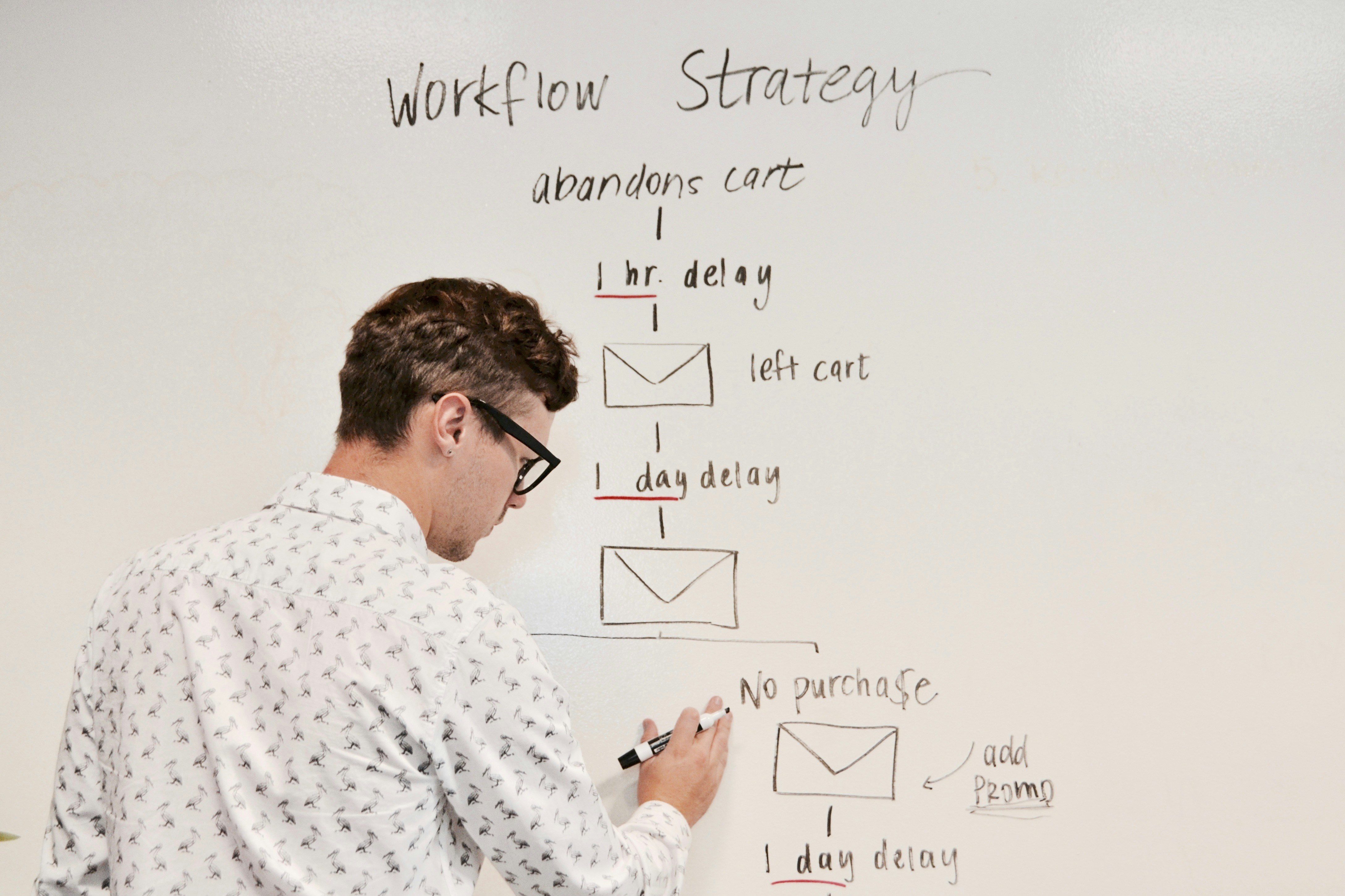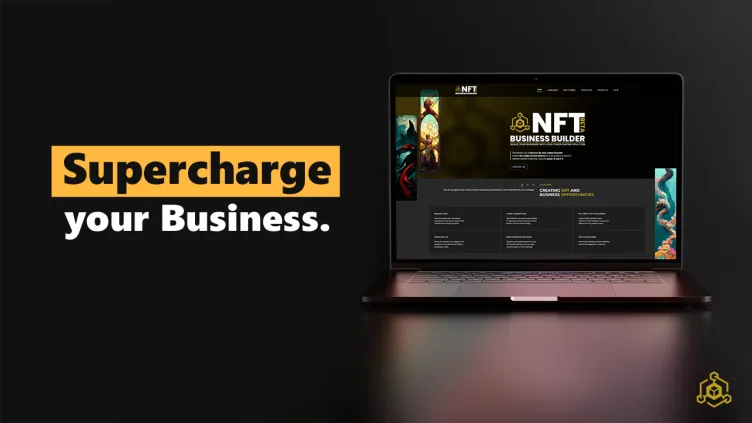Attention: Entrepreneurs, Executives, and Business Leaders
Why Implementing AI Should Be Your Primary Business Objective This Year
Did you know that a staggering 84% of business leaders accept AI will provide a competitive edge, but just 17% have implemented AI at scale? You have two choices. Ignore AI, and fall behind. Or, embrace AI now and build a competitive advantage.
Start now with our complimentary, customized AI readiness report. It assesses where you are and the exact next steps you need to begin your AI business integration journey.


The Problem
If professional and organizational growth feels slow and painful, you're likely experiencing resource-limited transformation...
Feeling like you're fighting a losing battle against the competition
Exhausted from continually playing catch-up
Depressed watching nimbler competitors steal market share
Disappointed in lack of resources to re-invest in growth
Stressed and overloaded attempting transformation with limited bandwidth
Discouraged by failed previous transformation attempts
Scared that slow progress means extinction
What if you could achieve exponential transformation without exponential resources? With AI, you can unlock hidden potential across your people, processes and tech stack. The future is here!
The Facts
Why traditional transformation doesn't work...
Professionals
80%
of professionals feel like they don't have enough time
Managers & Leaders
30%
increase in operating expenses from inefficient reporting processes
Executives
48%
of organizations have a formal business process management program
Entrepreneurs
21%
of companies save 10% or more optimizing business processes
But what if you could achieve rapid transformation without steep investments? With AI, you can optimize processes, extract insights, and accelerate innovation across your business. The future is full of possibilities.
The Solution
Explore the Exponential Potential of AI-Powered Business Transformation
The cutting-edge system for rapidly transforming your business with AI.
Develop AI skills to accelerate workflows, amplify your impact, and augment your abilities.
Streamline and automate workflows across departments
Accelerate innovation and new product development
Unlock your team's full potential to drive results
Establish a competitive edge with advanced AI
Become an AI-driven industry leader!

Meet the NexGen Solutions Team
Customization. At NexGen, we don't believe in one-size-fits-all. We understand every business is unique, and so are its needs. That's why our AI models are custom-trained and fine tuned for each business, ensuring they perfectly align with your specific requirements and workflows. Our AI doesn't just fit into your operations, it transforms them.

Glenn Dietzel
Co-Founder & Business Strategist

Jurica Dujmović
Co-Founder & AI Archictect

Bruce Fleck, PhD
Co-Founder & Marketing Strategist

Alecander Williams
Data Scientis
The Big Idea
The Truth is That Business Scaling is Possible
Without Lots of Employees or Capital
Scaling requires a business operating system that balances products, people, and processes.

Products
Lorem ipsum dolor sit amet, conseca dipiscing elit.

People
Lorem ipsum dolor sit amet, conseca dipiscing elit.

Processes
Lorem ipsum dolor sit amet, conseca dipiscing elit.
The Answer: An AI-Powered Business Operating System for Scaling!
The Solution
The AI-Powered Business Operating System for Scaling (AI-BOSS)

Enjoy these benefits:
Automates tedious and repetitive tasks
Provides data-driven insights to inform decisions
Optimizes business processes for efficiency
Enables faster innovation and product development
Allows scaling without lots of employees
Increases marketing reach and conversions
Lowers operational costs and increases profits
Improves customer experience and satisfaction
Gains competitive advantage with AI capabilities
Frees up time to focus on business growth
Organizations who've benefited from our consulting...
Our Services
AI Transformation Solutions for Individuals, Teams, and Organizations
AI-powered productivity is the future of knowledge work. Automate admin tasks, accelerate content generation, and analyze complex data with easy-to-use AI tools. AI isn't just a tool—it's your competitive edge. Reclaim your hours and amplify your impact. Learn more...
Discover how AI can revolutionize your business by automating complex tasks, driving efficiency, and freeing your team to focus on strategic and creative initiatives. Learn more...
Experience the power of customization with our Bespoke AI models, tailor-made to align with your business objectives and drive unprecedented innovation and efficiency. Learn more...
The Proof

Weiss Ratings

"In a remarkable achievement, we successfully converted a collection of 302 marketing copy documents into a refined Pinecone Vector Database. This robust and detailed database enriched the context for ChatGPT, enabling it to generate marketing copy that masterfully replicated the unique style, tone, and distinctive voice of the original author. This fusion of AI and human ingenuity has revolutionized our approach to content creation, underscoring our commitment to innovation and quality."
Our Success Story
Dive into our Success Stories to explore how we've transformed complex challenges into innovative solutions through the power of AI. Each story represents our commitment to driving success, showing you the impressive outcomes, we've achieved for businesses by harnessing the capabilities of leading AI platforms.
Programs and Services
Our Programs and Applications
Prompting Principles for Professionals
Create Your ChatBot Workshop
Buyers Blueprint and Creative Brief Workshop
AI-Powered Business Operating System for Scaling Program


Harness the power of AI now.
Build an AI chatbot worth over $3500.
Learn the basics of AI and how it can revolutionize your customer service.
Understand the principles of chatbot design and functionality.
Get hands-on experience building your own AI-powered customer service chatbot.
Discover how to integrate your chatbot into your existing customer service framework.
Learn how to analyze and interpret chatbot data to continually improve your customer service.
Understand how an AI chatbot can help reduce operational costs and increase efficiency.
Gain the confidence and skills to continue exploring and implementing AI solutions in your business.
Hear From Our Clients

Darby Rollins
Founder, The AI Author

Lorem ipsum dolor sit amet, consectetur adipiscing elit. Quisque nisi nunc, tincidunt non nibh non, ullamcorper facilisis lectus. Sed accumsan metus viverra turpis faucibus, id elementum

Opher Brayer
CSO, Impro.ai

Lorem ipsum dolor sit amet, consectetur adipiscing elit. Quisque nisi nunc, tincidunt non nibh non, ullamcorper facilisis lectus. Sed accumsan metus viverra turpis faucibus, id elementum

Jurica Dujmović
MarketWatch Tech and Crypto Journalist

Lorem ipsum dolor sit amet, consectetur adipiscing elit. Quisque nisi nunc, tincidunt non nibh non, ullamcorper facilisis lectus. Sed accumsan metus viverra turpis faucibus, id elementum

Licensing Strategies to Scale Your Business Faster
A licensing strategy can be a great way to scale your business faster than through M&A alone. By finding the right licensee and negotiating a mutually beneficial agreement, you can protect your brand while expanding your reach and customer base. There are some key things to keep in mind when choosing a licensee, such as making sure they are reputable and that the agreement terms are favorable to your company.
Licensing vs. M&A: Which Is Right for Your Business?
When it comes to scaling your business, you have two main options: mergers and acquisitions (M&A) or licensing. Both have their pros and cons, but which one is the right choice for your business? Let's take a closer look at each option to find out.
M&A involves combining two businesses into one. This can be done through a merger, in which both businesses combine to form a new entity, or an acquisition, in which one business buys out the other. M&A can be a great way to quickly scale your business by giving you access to new markets, customers, and resources. However, it can also be very risky. M&A deals often fail to meet expectations, and they can be very expensive and time-consuming.
Licensing, on the other hand, involves renting or leasing your products or services to another company. This is usually done via a contract that outlines the terms of the agreement. Licensing can be a great way to generate revenue without having to invest in new infrastructure or staff. It can also help you enter new markets without incurring much risk. However, licensing deals can be difficult to negotiate, and you may not have as much control over how your products or services are used by the licensee.
So, which is the better option for your business: M&A or licensing? The answer depends on your specific situation. If you're looking for a quick way to scale your business and are willing to take on some risk, M&A may be the right choice for you. If you want to generate revenue without incurring much expense or risk, licensing may be the better option. Ultimately, it's up to you to weigh the pros and cons of each option and decide which is right for your business.
How to Negotiate a Licensing Agreement
As a business owner, there's a good chance that you've considered licensing your products or services at some point. After all, licensing is a great way to generate additional revenue without having to put in the extra work to produce more goods or services. But how do you go about finding the right licensee and negotiating a licensing agreement that benefits both parties involved? Here are a few tips:
1. Do your research. It's important that you take the time to research potential licensees before entering into negotiations. You'll want to make sure that they're reputable and that they have the resources necessary to successfully produce and market your product or service.
2. Draft a detailed agreement. Once you've found a potential licensee that you're comfortable doing business with, it's time to draft a detailed licensing agreement. This agreement should spell out exactly what each party is responsible for and what rights and privileges are being granted. Be sure to have an attorney review the agreement before signing anything!
3. Negotiate in good faith. When it comes time to negotiate the terms of the agreement, be sure to do so in good faith. Keep in mind what's fair and reasonable for both parties involved, and try to come to an agreement that everyone can be happy with.
Licensing can be a great way for business owners to generate additional revenue without having to put in extra work. But it's important that you take the time to find the right licensee and negotiate a fair and detailed licensing agreement before moving forward. By following these tips, you'll be on your way to success!
The Top 3 Licensing Mistakes Business Owners Make... And How to Avoid Them
As I have mentioned, licensing is a great way to generate additional revenue and expand your brand. But the process can be tricky, and there are a few common mistakes that business owners make that can trip them up. I'm going to show you the three most common mistakes and how to avoid them.
1. Not Doing Your Research
One of the most common mistakes business owners make when licensing their products or services is not doing their research. They enter into agreements without really knowing what they're getting themselves into. They don't know the ins and outs of the licensing process, or what kind of rights they're giving away. As a result, they often end up in unfavorable deals that leave them feeling taken advantage of.
To avoid this mistake, it's important that you do your research before entering into any licensing agreement. Learn as much as you can about the process and what kind of rights you're entitled to. You should also have a clear understanding of what you want to achieve with the agreement. What are your goals? What are your expectations? Once you have a good understanding of these things, you'll be in a much better position to negotiate a favorable deal.
2. Not Protecting Your Intellectual Property
Another common mistake business owners make is not protecting their intellectual property (IP). When you license your product or service, you're essentially giving someone else permission to use your IP. If they choose to do so without following the terms of the agreement, or if they use it in an unauthorized way, it could damage your brand or reputation—and even worse, it could put your business at risk.
To avoid this mistake, it's important that you include provisions in your agreement that protect your IP. These provisions should state how the other party is allowed to use your IP, and what they need to do if they want to use it in an unauthorized way. By including these provisions, you'll have peace of mind knowing that your IP is protected and that your business is safe.
3. Not Getting Everything in Writing
The third and final mistake I see business owners make when licensing their products or services is not getting everything in writing. This is one of the biggest mistakes you can make because it leaves everything up for interpretation—and interpretation often leads to misunderstanding and conflict down the road.
To avoid this mistake, make sure that every aspect of your agreement is clearly laid out in writing. This includes things like payment terms, usage rights, expiration dates, etc. By getting everything in writing, you'll eliminate any ambiguity and ensure that both parties are on the same page from the start.
Licensing can be a great way to generate additional revenue and expand your brand—but only if it's done correctly. To avoid making common mistakes that can trip you up, be sure to do your research ahead of time, protect your intellectual property, and get everything in writing before entering into any agreement. By following these tips, you'll be well on your way to success!
A License to Print Money (Protecting Your Brand)
You've built a successful business and now you're ready to take it to the next level by licensing your brand. But before you sign on the dotted line, there are a few things you need to know in order to protect your brand.
What Exactly is Licensing?
Licensing is when a company pays to use another company's brand name, logo, or other intellectual property. This is usually done in order to produce a new product or service. For example, let's say you have a successful line of clothing. A company that makes shoes might want to license your brand in order to produce a line of shoes with your logo on them.
Choosing the Right Partner
Not all companies are created equal, and not all companies will have the same respect for your brand. It's important to do your research and choose a partner that you feel comfortable with. Ask around and see if anyone has had any experience with the company you're considering licensing your brand to. Once you've found a company you're comfortable with, it's time to negotiate the terms of the agreement.
Negotiating the Terms of the Agreement
This is where having a good lawyer comes in handy. Your lawyer will help you negotiate the terms of the agreement so that your interests are protected. Some of the things you'll want to consider are:
-What rights are being licensed?
-For how long?
-In what territory?
-What are the royalty rates?
-What are the restrictions on how the licensed property can be used?
-What are the consequences if the licensee doesn't meet its obligations?
-How will disputes be resolved?
-Who will own any improvements made to the licensed property?
These are just some of the things you'll want to consider when negotiating the terms of your licensing agreement. Make sure that everything is clearly spelled out in writing so there's no confusion later on down the road.
Negotiate the terms of the agreement so that your interests are protected, and make sure that everything is clearly spelled out in writing before moving forward. By taking these precautions, you can help ensure that your brand is protected during a licensing deal.
How to Use Licensing to Scale Your Business
By definition, licensing is "a contractual arrangement in which one party grants another party the right to use its IP." In other words, it's a way for you to give others permission to use your intellectual property—such as your brand, patents, or copyrighted material—in exchange for a fee.
There are many benefits to using a licensing strategy to scale your business. For one, it can help you generate revenue without having to put in the extra work of manufacturing and selling products yourself. Additionally, it can help you reach new markets and tap into new customer segments that you might not have had access to before. And lastly, it can help build your brand and increase awareness of your company.
However, before you go ahead and start licensing your IP willy-nilly, there are a few things you should keep in mind to make sure it's successful for you. First and foremost, you need to make sure you have strong IP rights—otherwise known as intellectual property rights—to protect your IP. Secondly, you need to consider what type of license agreement makes the most sense for your business. And lastly, you need to have a plan for enforcing your rights if someone violates your license agreement.
Intellectual Property Rights
Before you can even think about entering into a licensing agreement, you need to make sure you have strong intellectual property rights. These are the legal rights that allow you to control how others use your IP—including your copyrights, patents, trademarks, and trade secrets.
There are four main types of intellectual property rights:
1. Copyrights: These protect original works of authorship, such as books, music, and artwork.
2. Patents: These protect inventions or discoveries with a unique design or function.
3. Trademarks: These protect words, phrases, logos, or other symbols that identify the source of goods or services.
4. Trade secrets: These protect confidential information that gives a business an advantage over its competitors (think Coca-Cola's recipe).
Types of License Agreements
Once you have strong IP rights, you need to decide what type of license agreement makes the most sense for your business. There are three main types of licenses:
1. Exclusive: This means that only the licensee has the right to use your IP.
2. Non-exclusive: This means that more than one party can use your IP.
3. Partially exclusive: This is a mix of the two—the licensee has the right to use your IP, but so do you.
The type of license agreement you choose will depend on a number of factors, such as how much control you want over who uses your IP, how important exclusivity is to you, and what you're willing to give up in exchange for a licensing fee.
Enforcing Your Rights
Lastly, you need to have a plan for enforcing your rights if someone violates your license agreement. This includes having a clear understanding of what constitutes a violation, and setting up procedures for handling infringement claims. Additionally, it's important to have a lawyer review your license agreement before you sign it, so that you know your rights and obligations under the agreement.
I’m sure by now you can tell that licensing can be a great way to scale your business. It can help you generate revenue without having to put in the extra work of manufacturing and selling products yourself. Additionally, it can help you reach new markets and tap into new customer segments that you might not have had access to before. And lastly, it can help build your brand and increase awareness of your company.
I have used licensing extensively in my business over the past 19 years as my #1 strategy to grow and scale. Recently I co-founded a new technology to assist entrepreneurs to scale their impact with a cool “loyalty royalty” model using the power of web3. You can check it out here.
Respectfully,
Glenn Dietzel
Get the AI Prompting for Professionals Course Now!

Tired of ChatGPT not giving you the output you're looking for? In this 90-minute course, you'll learn generative-AI prompting principles to help you do any task faster with AI.
Write better emails faster
Brainstorm project ideas
Draft project timelines
Summarize meeting minutes and tasks
Analyze data and prepare reports
Evaluate decision-making alternatives
Offer critiques on plans and memos
Extract important points from long articles
Your Questions
Questions About Using AI?

AI sounds complicated and difficult to implement.
The course is designed for beginners and teaches you to apply AI in simple, practical ways relevant to business productivity.
AI may not understand the nuances of my business or industry.
The course provides prompting strategies to teach AI specifics so that you can apply it to your unique business needs.
I don't have time to learn an entirely new technology.
The bite-sized video lessons fit into pockets of time so you can learn while working. If AI technologies can save time and improve your effectiveness, can you really afford not to learn it?
AI feels impersonal compared to how I currently work.
You can customize AI interactions for your preferred working style and voice. In fact, implementing AI for tedious, time-consuming tasks gives you more time for human interaction.
I'm concerned about data privacy and security with AI.
The course covers data protocols so you can use AI securely and privately. Of course, check with your IT department about your company’s policy regarding the use of AI tools.
AI lacks the critical thinking that humans provide.
The course shows you how to combine AI speed with human judgment and nuance. Using AI will help you improve critical thinking skills through practice evaluating AI outputs.
The upfront investment in AI is difficult to cost-justify.
Productivity gains from AI save substantial time and costs in the long run. Using AI for most business tasks is actually quite inexpensive.
Our current tools meet our needs, so why change?
While your current tools work well today, they will be no match for what AI can do now or in the near future. AI enables work that current tools simply can't match in speed or quality.
Articles of Interest

A Faster Way to Scale Your Company with an Automated Marketing Multiplier
Looking to grow and scale your company faster? NFT Business Builder is the perfect platform for entrepreneurs who want to take their business to new heights. With our easy-to-use system, you can create an online presence that will...
...more

Licensing Strategies to Scale Your Business Faster
A licensing strategy can be a great way to scale your business faster than through M&A alone. By finding the right licensee and negotiating a mutually beneficial agreement, you can protect your brand ...
...more

Are Vanilla AI Solutions Failing Your Brand? Discover the Power of Tailored AI
Tired of vanilla outputs from AI that don't reflect your unique value proposition or your branding? I can tell you first hand the frustration that numerous C level officers have with off-the-shelf AI ...
...more

What Does a $1.4 Billion Investment in AI Mean for the Future of Consulting and Your Business?
Wondering if AI investments are just a trend or a necessity for staying competitive? EY has just announced a staggering $1.4 billion investment in AI, further solidifying AI's role in shaping the future...
...more

“Turning today's science fiction into tomorrow's reality.”
Navigation
Social Media
© 2026 NexGen Business Solutions. All Rights Reserved.
© 2026 Company Name - All Rights Reserved, consectetur adipiscing elit. Maecenas commodo suscipit tortor, vel tristique sapien












